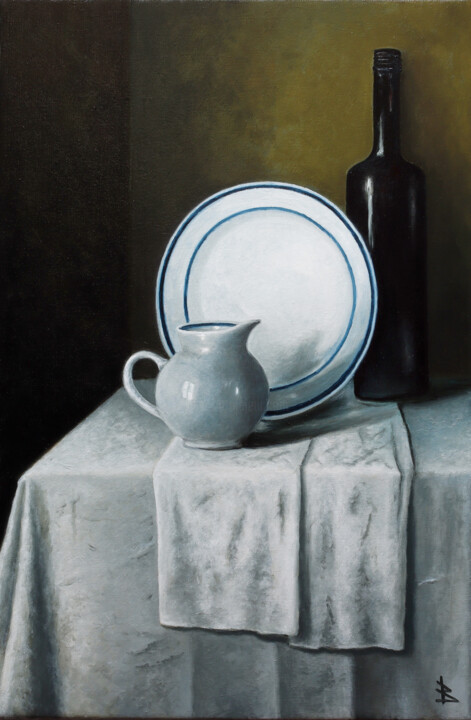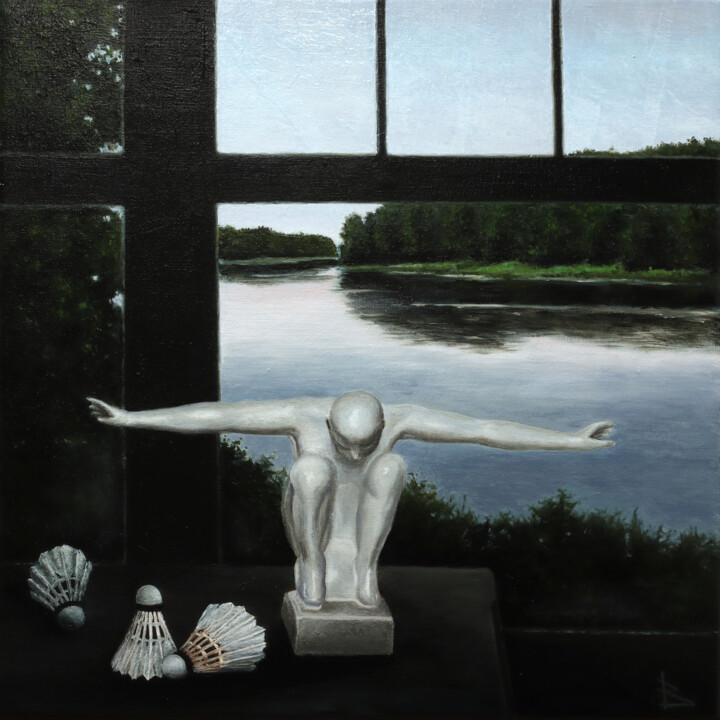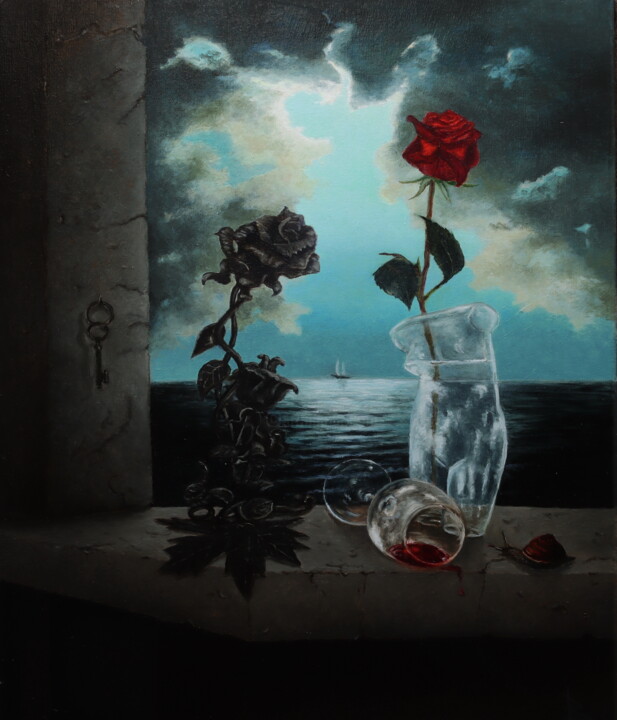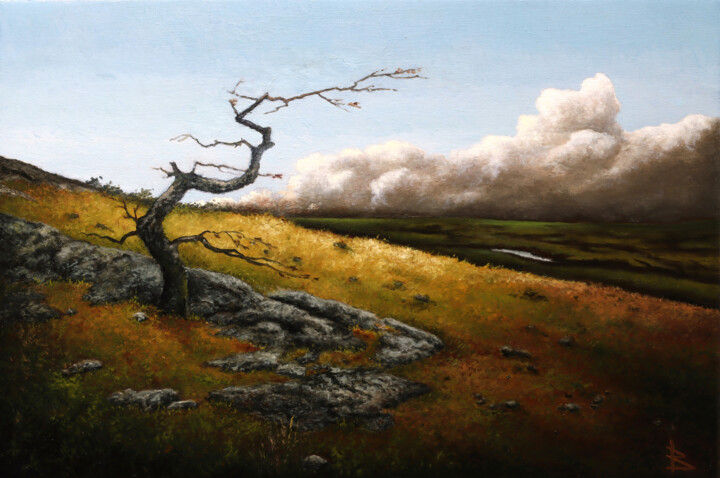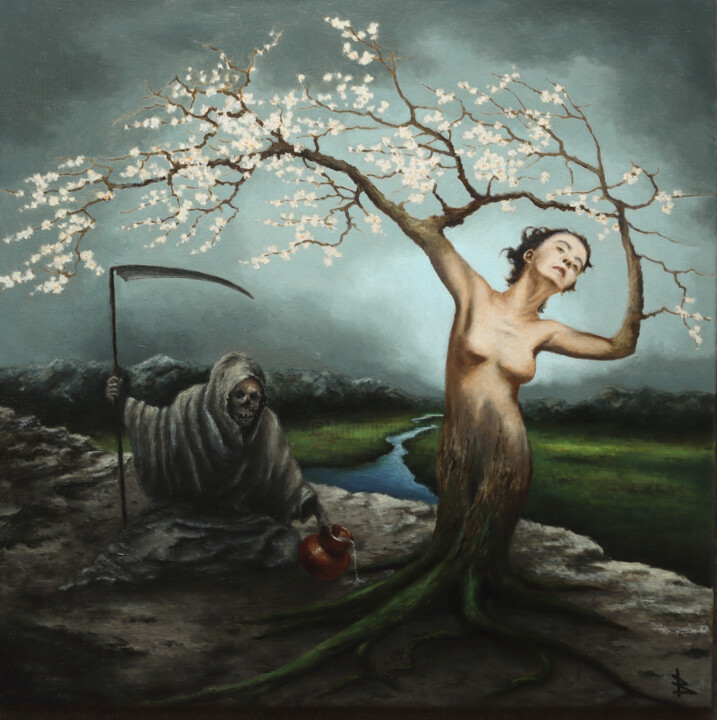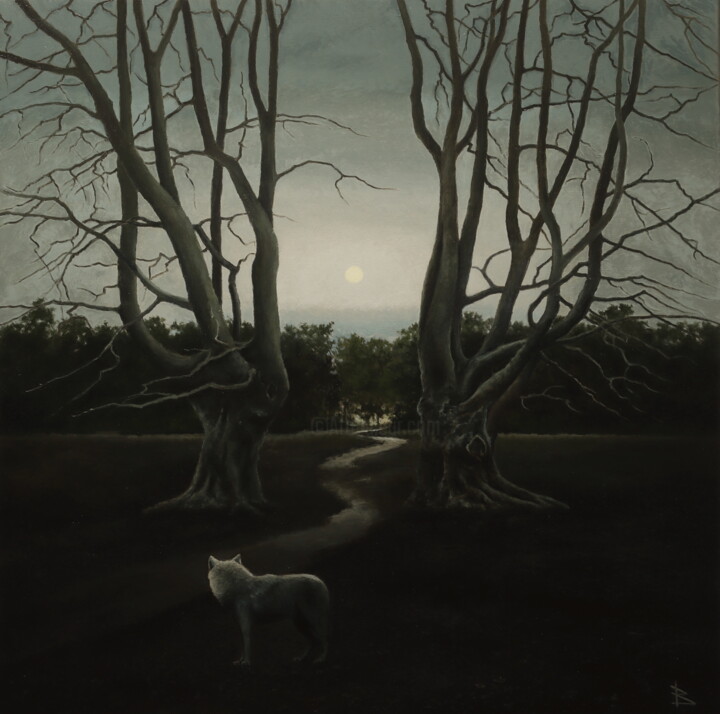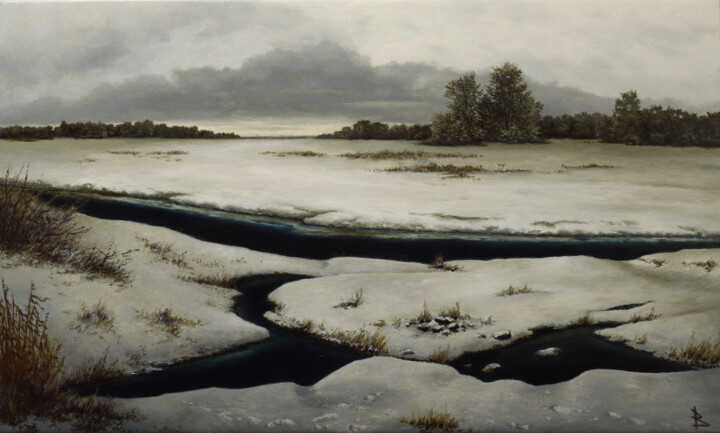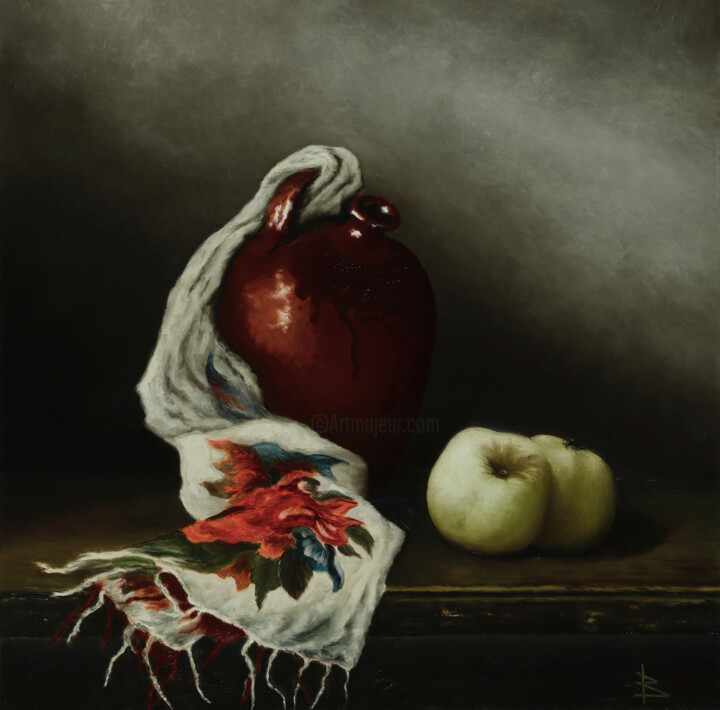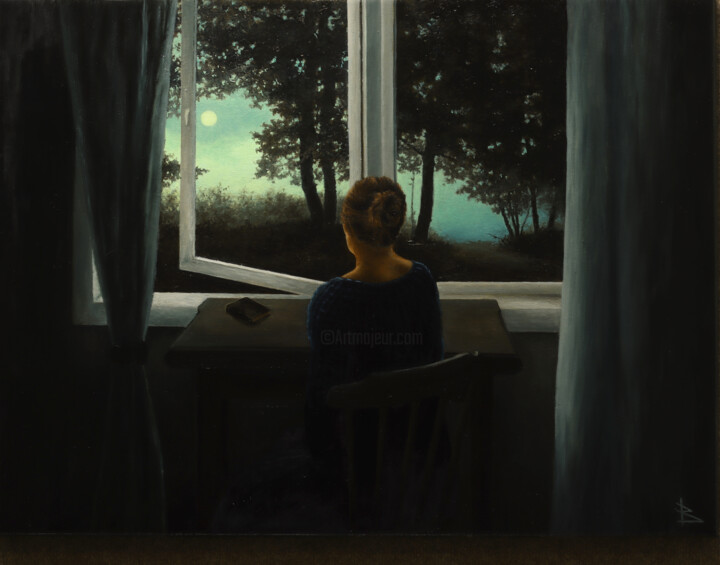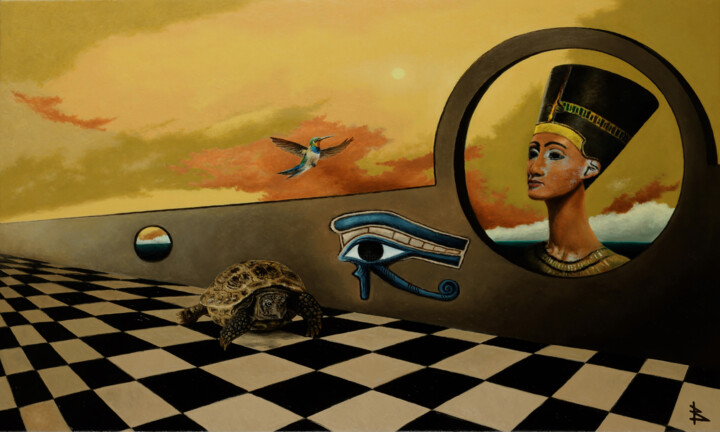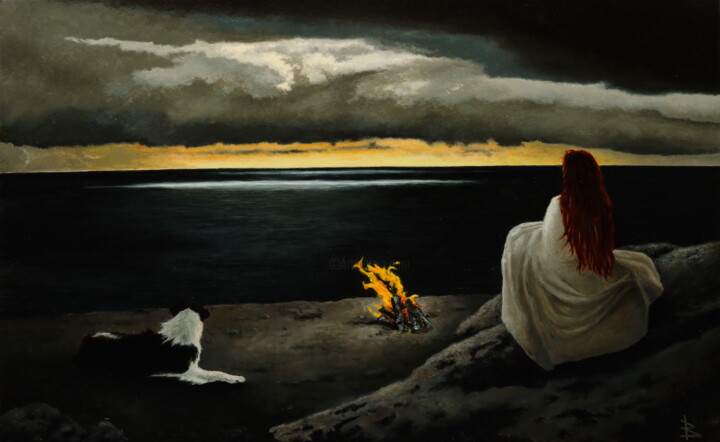What inspired you to create art and become an artist? (events, feelings, experiences…)
My parents were fond of art and history of art.
I’ve always wanted to paint ever since I was a child. But, unfortunately, studying painting turned out to be impossible in my childhood. The art school was very far from home, and my parents couldn’t take me there all the time. At that time there were no other ways of training as a painter, and I had to forget about my dream. Luckily, it didn't last forever.
I was collecting a lot of paintings, but the desire to paint has never left me.
In 2017, I opened a gallery where I exhibited part of my collection of paintings and began taking classical painting lessons. It was an incredibly interesting experience, I worked hard, and quite quickly achieved results that allowed me to start selling my paintings.
What is your artistic background, the techniques and subjects you have experimented with so far?
I haven’t got any artistic education as such, except for the children’s art school, which, as I’ve already mentioned, I had to leave. I took private painting lessons from artists working in classical techniques. I still take pleasure in working in the same technique.
What are the 3 aspects that differentiate you from other artists, making your work unique?
I think one of the differences is my attention to details and their thorough refinement. There is nothing secondary. Everything in the picture should look almost perfect. It’s also the commitment to the classical art traditions in terms of plots.
I pay just as much attention to the material I work with.
I choose high quality canvas and stretch the canvas onto a stretcher myself, because that’s how I can be sure that after a few years the paintings will still retain their original appearance.
Special attention is paid to paints. I think one of the main differences from most artists is the usage of only pure oil paint in my work, without solvents or any other supplementary materials. The paints are based only on natural pigments.
As said above, nothing is secondary for me - from concept to execution, everything should strive for perfection.
Where does your inspiration come from?
I think the stereotype that “an artist gets inspiration first and then creates the work of art” is greatly exaggerated. Inspiration usually comes to me during work when one can completely surrender to it. At the same time, sometimes the inspiration is so strong that the original plan can change completely, and the painting turns out different from what was originally intended.
To put it briefly: you never know what kind of painting you’ll end up with. But it will be exactly what inspiration led you to.
What is your artistic approach? What visions, sensations or feelings do you want to evoke in the viewer?
I strive to make sure that my painting is not just a beautiful spot on the wall, a piece of decor forgotten soon after the purchase.
I want the painting to evoke emotions, so that every time it tells stories about nature, the nature of things, emotions, people.
What is the process of creating your works? Spontaneous or with a long preparatory process (technical, inspiration from art classics or other)?
I never write spontaneously. I usually think over each painting, plot, composition.
Then in the process of work I make adjustments to the original idea. And, as I said earlier, such adjustments can completely change the original plan. But, as my experience shows, it’s always for the better.
Do you use a particular work technique? if so, can you explain it?
I’ve developed my own specific technique that allows me to achieve good results. This is a rather complex process of multilayer painting where each layer is a whole painting. And this way layer after layer.
Unfortunately, all these nuances are not reproduced when viewing the picture on a monitor screen. However, it’s this technique that makes the image deeper and more realistic.
Are there any innovative aspects in your work? Can you tell us which ones?
As seen from my works, I am a sincere fan of classical painting, which is based primarily on traditions and painstaking work. I am conservative on this issue. I’m not aware of any innovations specifically in classical painting. Maybe if there are such innovations and with their help it’s possible to preserve the principles of classical painting, they will be present in my works in the future.
Do you have a format or medium that you are most comfortable with? if yes, why?
As I said above, in my work I use oil paints and high-quality canvas, which I stretch myself.
As for the format, the most acceptable is the medium format. And here's why. Oil painting has its own technological characteristics, including the characteristics of paint drying.
With the technology of multilayer painting that I use, the medium format allows you to start the next layer of the painting even before the previous layer has completely dried off, which is fundamentally important.
Where do you produce your works? At home, in a shared workshop or in your own workshop? And in this space, how do you organize your creative work?
I have my own gallery. I paint right in the gallery, which is also my workshop at the same time. So interested visitors can see not only finished paintings, but also my paintings in progress.
Does your work lead you to travel to meet new collectors, for fairs or exhibitions? If so, what does it bring you?
It seems to me that any creative work becomes very difficult without experience exchange. Therefore, it is necessary both to participate in exhibitions and to review the exhibitions of other artists. Only the Internet won’t be helpful here; the paintings must be seen “live”. I pay great attention to exhibitions of classical painting, not only the exhibitions of works by old masters, but also contemporary artists working in the style of classical painting.
How do you imagine the evolution of your work and your career as an artist in the future?
The evolution of my artwork is constant work on improving the technique and searching for new ideas. Without this, in my opinion, an artist cannot have any future.
What is the theme, style, or technique of your latest artistic production?
The painting I’m working on at the moment is a narrative landscape composition. It is a little sad, probably because summer is coming to an end and autumn is coming. And autumn, as we know, is a season of sadness. Like all the previous works, it is executed in the style of traditional classical painting. I think it will work out.
Can you tell us about your most important exhibition experience?
The most important experience I get from exhibitions is communicating with people who understand and know about art.
If you could have created a famous work in the history of art, which one would you choose? And why?
The more I study painting, the more I understand that there are plenty of truly brilliant artists. There’s a huge number of works of art, participation in which can be considered an honor. It’s a very difficult choice I wouldn't want to make to be honest.
If you could invite one famous artist (dead or alive) to dinner, who would it be? How would you suggest to spend the evening?
Should this fantastic opportunity arise, I would prefer to meet Andrew Wyeth. It would be great to drink some wine in silence in the nature, and maybe even just to be silent for a while.

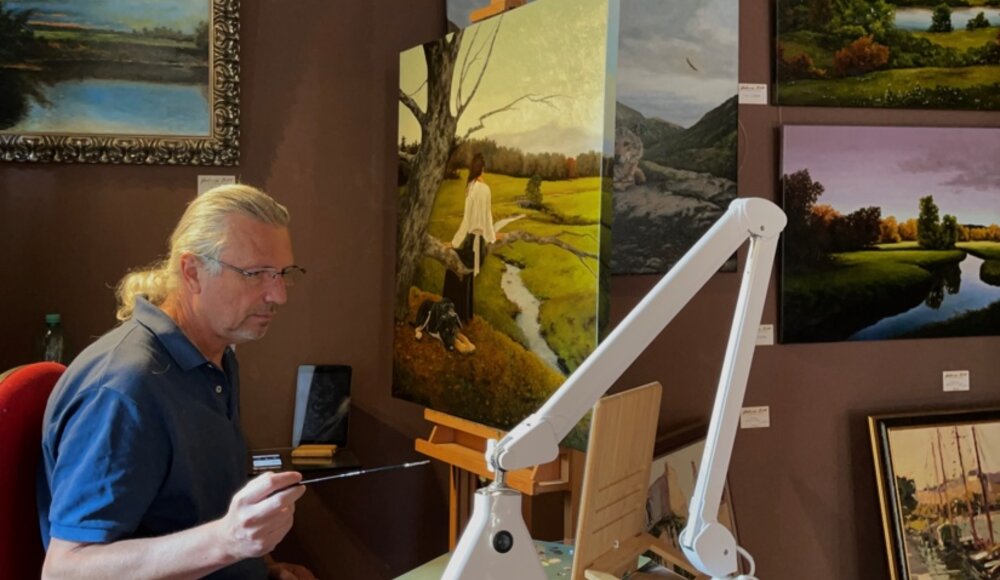




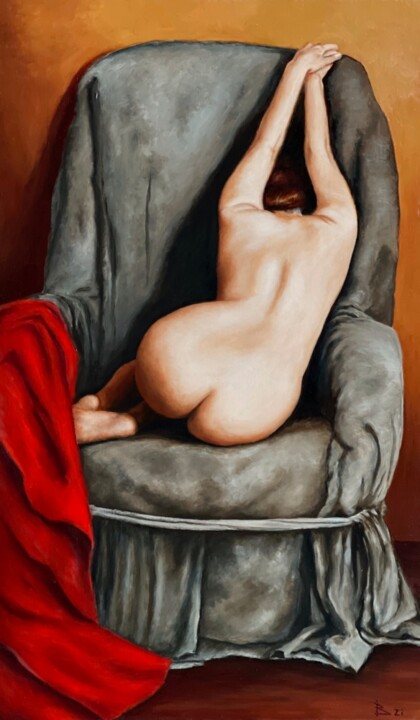
 Olimpia Gaia Martinelli
Olimpia Gaia Martinelli

